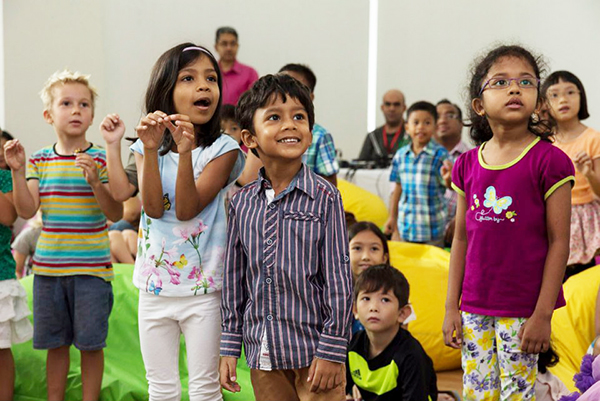By Ahmad Faizuddin
Long ago, school holidays were spent traditionally where children played in the fields, farms or even rivers. Todays generation is rather different. School children are more tech-savvy. They spend most of the time at homes with tablets, smartphones or play-stations. However, there are students who spend their holidays creatively and meaningfully.
Many programmes are offered during the school holidays. Some focus on outdoor activities, such as hiking, jungle trekking and many kinds of sport doings. Some others focus on building students critical thinking or developing their language skills. It fact, students learn more through these kinds of activities. They promote fun and encouragement in learning.
One of Hikmah programmes, for example, tries to conduct philosophy classes for youngsters between the age 5 to 17 years old. Hikmah, which literally means wisdom, is under Centre for Philosophical Inquiry in Education, Kulliyyah of Education, International Islamic University Malaysia. It attempts to re-cultivate thinking and communication skills that are being eroded from schools.
Students are encouraged to question issues like why do people treat animals like slave? Is life a journey? If life is a puzzle; does it need to be completed? Etcetera. These kinds of questions will develop individual students who are wise, have better thinking and reasoning, and respect for differences.
Even though the Malaysian Integrated Curriculum for Secondary School (KBSM) emphasises creative and critical thinking, we need more appropriate programmes to make it more effective. Through this programme students will embrace good values like friendship, fairness and freedom. Once they internalise the process of thinking critically and ethically, it will result in good citizens.
Students who have participated in this programme said it is an interesting and enjoyable. They are able to share different points of views openly, think critically before doing some acts, and make friends with others. At the end, it improves their confidence, especially encourages them to ask critical questions.
Another example of creative school holiday programme is NABILAH, with the main purpose of learning Arabic through entertaining games.It is an Arabic language-learning medium launched in 2011 by Ustaz Dedek Febrian of University Malaya, Ustaz Ahmad Suhail and Ustaz Annur Fajri of International Islamic University Malaysia.
It provides a fun, welcoming and enriching environment that brings together students, teachers and families, while fostering curiosity and creativity. Students have the opportunity to engage with Arabic language through a variety of activities, including games and songs.
NABILAH effectively and creatively motivates students through three steps: madah (syllabus based on students needs), nashid (culturally and socially adapted songs) and nasyat (fun activities focusing on four skills including listening, speaking, reading and writing).
Not long ago, I joined one of NABILAH’s Arabic camps as a facilitator for selected students at Sekolah Menengah Kebangsaan Kelana Jaya and surrounding schools. Some 300 students from different schools enthusiastically participated in this programme.
They engaged in learning Arabic language through fun activities and games. They even sang œJalur Gemilang song wholeheartedly, which was of course adapted into Arabic. At the end of the day, students could master about a hundred Arabic vocabularies. Imagine if we can apply this technique into everyday classroom teaching.
We really need programmes that inspire students to perform their best. It is said that good education opens the door to success. It is the teacher who opens the door, but students must willingly enter by themselves.
On the other hand, people believe that todays education pretty much depends on technology. Perhaps someday technology like search engines will replace teachers in the classrooms.
But successful teaching not necessarily needs technology. There will always be a need for human touch to shape the mind of students. A great teacher not only teaches but most importantly inspires.
Long time ago Socrates believed that todays children are tyrants. They contradict their parents, gobble their foods, and tyrannise their teachers. Perhaps this happened because they only saw their teacher talking alone in front of the class. As John Holt said, the biggest enemy to learning is the talking teacher.
Hopefully, when the school new term begins, teachers are armed with new ideas and fresh views. Learning should be fun. So game on!
 The Writer is a Ph.D. student at Kulliyyah of Education, Educational Management and Leadership, International Islamic University Malaysia (IIUM).Â
Photo of Makchic
